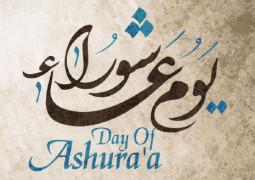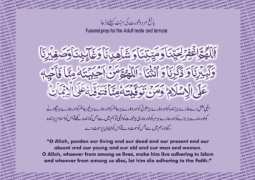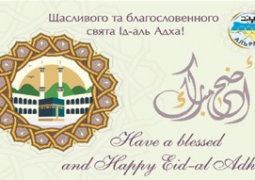
All acts forbidden for a person who has not yet cleansed himself from sex or a wet dream are prohibited to women in these two conditions, as these are considered major impurities. But, there are also two further prohibitions:
a: They cannot fast, menstruating women
If women fast, their fasting will be considered null and void. If they fast during the month of Ramadan, they will still have to make those days of fasting up later on. Mu’azhah said, “I asked ‘Aishah, ‘Why must we make up the fasts missed due to our menstruation, and not the prayers?’ She said, ‘That was what the Messenger of Allah told us to do. We were ordered to make up the fasts, and we were ordered not to make up the prayers.” (Related by “the group.”)
b: She cannot engage in sexual intercourse
Said Anas, “When a Jewish woman was menstruating, her husband would not eat or sleep with her. The companions asked the Prophet, upon whom be peace, about that, and Allah revealed: “They question you concerning menstruation. Say: ‘It is an illness, so let women alone at such times and go not in unto them until they are cleaned. And when they have purified themselves, then go in unto them as Allah has enjoined upon you. Truly, Allah loves those who turn unto Him and loves those who have a care for cleanliness” (al-Baqarah 222). The Messenger of Allah also said, “Do everything except intercourse.” (Related by “the group,” except for al-Bukhari.)
In his comments on the subject, an-Nawawi states, “If a Muslim believes it is permissible to have intercourse with his menstruating wife, he becomes an unbelieving apostate. If he does it, not thinking that it is permissible, but out of forgetfulness or not knowing that it is forbidden or not knowing that his wife was menstruating, then there is no sin or expiation upon him. If he does it on purpose, knowing that it is forbidden, he has committed a grave sin and must repent. There are two opinions on this: the more correct one is that there is to be expiation.” He further says, “All scholars say that one may touch anything above the navel or below the knees. Most scholars say that it is permissible to touch what is between the navel and the knees, but not the vagina or anus.” An-Nawawi concludes that it is permitted but hated, as that is the strongest position from the evidence. This evidence is based upon the practice of the Prophet’s wives: when he wished to be with them during their period, they would put something over their vagina. (Related by Abu Dawud.) Al-Hafez observes, “Its chain is strong.” Masruq ibn al-Ajda’ asked ‘Aishah, “What is off limits to me sexually during my wife’s menstruation?” She said, “Nothing, except the vagina.” (Related by al-Bukhari in his Tarikh.)
Women with Prolonged Flows of Blood
Islam defines such an occurrence as the flowing of blood outside of the regular time. This usually happens in three specific cases. In the first case, the woman knows that her flow of menstrual blood is lasting longer than usual. In such a case, she will act according to her customary period, and the remainder will be considered days of prolonged blood flows. This is based on the hadith of Umm Salamah, in which she asked the Messenger of Allah, upon whom be peace, about this condition. He said, “She should wait for the days and nights of her normal period and figure them out of the month, and she should leave the prayer during those days. (Afterwards) she should perform ghusl, tighten something around her vagina and then pray.” (Related by Malik, ash-Shafi and “the five,” except for at-Tirmizhi.)
Evaluating the report, an-Nawawi says, “Its chain meets the conditions (of al-Bukhari and Muslim).” Al-Khattabi holds, “That regulation is for the woman who is experiencing prolonged blood flows. If the blood is flowing, the Prophet ordered her to leave the prayer during her regular period, and to perform ghusl after her customary time has passed. Then, she becomes just like any other purified person.”
In the second case, a woman does not know her period well enough to determine if she is experiencing menstrual bleeding or a prolonged flow of blood. In that case, her menstruation is considered to be six or seven days, which is the most common among women.
Said Jamnah bint Jahsh, “I had a very strong prolonged flow of blood. I went to the Prophet to ask him about it. When I asked him if I had to stop praying and fasting, he said ‘Tie around a cloth, and it will stop.’ I said, ‘It is greater than that.’ He said, ‘Curb it.’ I said, ‘It flows greatly.’ He then said, ‘You may do one of two things: either one will suffice. Which one you are able to do you know best. This is a strike from Satan. Be on your period for six or seven days, which Allah knows, and then perform ghusl until you see that you are clean. Pray for fourteen nights or thirteen nights and days and fast, and that will be sufficient for you. Do that every month as the other women become pure and menstruate. If you can, you may delay the noon prayer and hasten the afternoon prayer. Perform ghusl and pray the noon and afternoon prayers together. Then delay the sunset and hasten the night prayers and pray them together. Perform ghusl for the morning prayer and pray it. This is how you may pray and fast if you have the ability to do so...” And he said, “That is the more loved way to me.”
As to the authenticity of the hadith, it is related by Ahmad, Abu Dawud and at-Tirmizhi, who grades it as hassan sahih. He says, “I asked al-Bukhari about it, and he called it Hassan.” Ahmad ibn Hanbal says it is hassan sahih.
Al-Khattabi observes, in a note to this hadith, that this is for the woman who is a “beginner” and does not know her regular days of menstruation. The Prophet told her to act according to the customary situation of women, and to consider herself as having her period only once a month, like most women. His statement, ‘As women menstruate and as they become pure’ points to this fact. This is by analogy to the affairs of women with respect to each other in menstruation, pregnancy, maturity and other affairs of theirs.”
In the third case, a woman has a regular period, but she is able to distinguish the blood. She should, therefore, behave according to the type of blood she sees. Fatimah bint Abu Hubaish had a prolonged flow of blood, and the Prophet told her, “If it is menstrual blood, it is dark and recognizable. If you have that, abstain from the prayer. If it is other than that, make ablution and pray, for it is a vein.”
Women who fall into any of these categories must abide by the following regulations:
Ghusl, menstruating women
She does not have to perform ghusl for every prayer, except for the one time when her period or blood flow has ended.
She must make ablution for every prayer, menstruating women
Said the Prophet, “Make ablution for every prayer.” According to Malik, this is only preferred and not obligatory (unless she nullifies her ablution, of course).
a: Keeping the blood in check, menstruating women
She is to wash her Private part before she makes ablution, and she should wear something which soaks up the blood. It is preferred for her to do what she can to keep the blood in check.
b: Ablution, menstruating women
She should not make ablution before the prayer’s time begins.
To be continued




